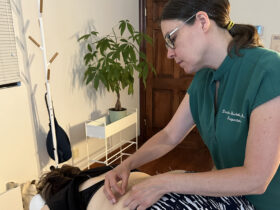Technology and life sciences companies in New Jersey can now apply to sell their net operating losses and unused research and development tax credits for cash
The New Jersey Economic Development Authority (NJEDA) announced that it has opened applications for the 2022 Technology Business Tax Certificate Transfer Program, commonly known as the Net Operating Loss (NOL) Program. Hailed as a lifeline for companies that have yet to reach profitability, the NOL Program enables early-stage technology and life sciences businesses in the Garden State to sell a percentage of their New Jersey net operating losses and unused research and development (R&D) tax credits to unrelated profitable corporations for cash. The NJEDA is accepting applications online through June 30, 2022 at http://www.njeda.com/nol.
Participants can use the capital raised through the NOL Program to help cover allowable costs incurred in connection with the operating their business such as salaries, R&D, and other working capital expenditures. The NJEDA and the New Jersey Department of Treasury’s Division of Taxation jointly administer the program.
Since the program’s inception in the late 1990s, $1.126 billion in funding has been distributed to more than 570 technology and life sciences companies. The average award for companies approved to sell their net operating losses through the program in 2021 was $1.82 million.
The New Jersey Economic Recovery Act of 2020 (ERA), which Governor Phil Murphy signed into law last year, increased the program’s annual cap from $60 million to $75 million. It also increased the lifetime cap for an individual applicant from $15 million to $20 million.
“Innovative New Jersey companies will be able to benefit from enhancements made to the NOL Program by the ERA as they work toward commercialization,” said NJEDA Chief Economic Transformation Officer Kathleen Coviello. “Connecting early-stage businesses with access to non-dilutive funding and helping them fuel their growth are key to achieving Governor Murphy’s goal of recapturing New Jersey’s role as a leader in innovation. We look forward to supporting even more young companies as a result of expanding this critical program.”
Coviello noted that $15 million of the $75 million program allocation will be reserved for the surrender of transferable tax benefits exclusively by eligible companies operating within the boundaries of the State’s three Innovation Zones of Newark, Camden, and the Greater New Brunswick area, companies located in Opportunity Zones, and/or women- or minority-owned businesses certified by the State of New Jersey.
Potential applicants interested in learning more should visit the program website, which covers the program’s eligibility requirements in detail. Companies are strongly encouraged to review the reference materials and watch the program review and application walk-through videos posted on the program’s website at http://www.njeda.com/nol.
In addition to being vital to emerging companies, the NOL Program also provides enormous benefits to the profitable companies that are buying the net operating losses and unused R&D tax credits. A profitable company can purchase tax credits at a discount, based on the market price at the time. These tax credits have traditionally traded somewhere between 88 and 94 cents on the dollar. Once purchased, the tax credits can then be applied to reduce the buyer’s state tax obligation. For example: a purchase of $1,000,000 of tax credit at 92 cents on the dollar would enable a buyer to decrease their New Jersey taxes payable by $1,000,000 for the price of $920,000, representing a savings of $80,000. Buyers can be publicly listed are on the NOL Program’s website, if they so choose. Entities interested in becoming a buyer through the NOL Program can visit the website http://www.njeda.com/nol or reach out via email to nol@njeda.com for more information.
The New Jersey Economic Development Authority (NJEDA) serves as the State’s principal agency for driving economic growth. The NJEDA is committed to making New Jersey a national model for inclusive and sustainable economic development by focusing on key strategies to help build strong and dynamic communities, create good jobs for New Jersey residents, and provide pathways to a stronger and fairer economy. Through partnerships with a diverse range of stakeholders, the NJEDA creates and implements initiatives to enhance the economic vitality and quality of life in the State and strengthen New Jersey’s long-term economic competitiveness.













